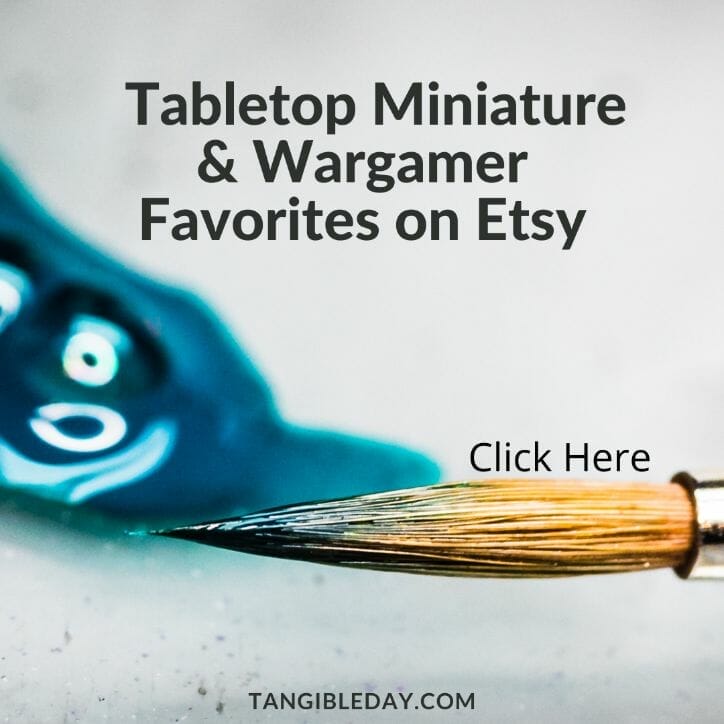Did you know we all play the same secret game? No matter what you play, a board game, a tabletop miniature skirmish, or roleplaying game like Dungeons & Dragons, the rules make games happen. As I watch my kids play with their toys, I notice that they make rules. They have rules for have a doll behaves, or whether an airplane can land on top of a truck. As I watch my children play made-up games, I speculate that becoming an adult, the true loss of innocence, involves a rejection of the instinct to create and engage in “imaginary” rules.
In this article, I ponder whether rules, games, and fun. More importantly, I share my stream of consciousness about what games can teach us about living an enjoyable life.
RELATED: GAMEPLAY BALANCE IS AN ILLUSION
Children: Who Cares About Rules?
I started thinking about while playing with my daughter. She wanted to play with her dollhouse and needed me to play a “role” for one of her dolls. She had created a “World” where the dolls served a might Giant who lived in a castle. The world had rules for how the dolls behaved, and went about their day.
My daughter invited me into her world, but I had to abide the rules. My part in this game was to pretend I was Jack (the same guy in the beanstalk story). During play, Jack could only make certain decisions that followed the story arch of “Jack and the Beanstalk”.
I couldn’t eat the magic beans, for example. But, I could throw them out the window into the garden, as long as the beans landed in dirt (so they could grow into the beanstalk).
Sure, the rules were railroading me, where my participation followed a script. In contrast to a sandbox style game, my daughter’s removal of any alternative options forced me to follow through with the character’s behavior and storyline.
Was this fun for me? Honestly, not really. But, on the bright side, railroading my character made the game simple and predictable. And, this is why I think my daughter found it fun. She wanted to see how the story played out when Jack encountered the Giant in the castle. But, she wanted to add variable of the other dolls who served the giant.
Ultimately, Jack was put in prison in the basement of the dollhouse (i.e., the castle). The servant dolls fed him, kept him alive, and entertained. Maybe this is a metaphor for the real world?
In any case, my daughter’s game sparked my thoughts on the necessity of rules to keep games fun. Of course, not all rules are fun, and what is considered fun is personal to an individual.
So a few questions arose: What is a game without rules? Why do rules make games fun? Do you need good rules for a fun time?
Let me be clear: I don’t think anyone can answer these questions, easily. But, here are my proceeding thoughts.
My Perspective: What is a Good Rule?
We can go off in all sorts of directions about “good” and “bad”. For the sake of discussion, a good rule is a set of instructions all participant players agree to follow before engaging in the game.
Game rules fall into two categories: concrete or organic rules. Chess is an example of a game with concrete rules. A game with organic, or house-rules may be a game of pick-up freeze tag or a child’s pretend tea-party.
For example, in a concrete set of rules when I play a game of chess with my kids, before we sit down to play, we already know that our pawns move a specific way. A rook or knight advances and captures opponent pieces in a predetermined procedure. In this instance, a rook moves in a straight line, and can advance an unlimited number of squares, and capture a single enemy piece on the final landing square.
A less strict set of good rules, would be those formed by children pretending to cops and robbers. One team are the “good guys” (i.e., the police), and the other the criminals. You can imagine in this game, two teams, abiding by the simple rules of touch-tag. A police officer touches a robber, and that person goes into the “jail” (they are “out”). This is repeated until all criminals are in prison.
Of course, in this game, you could also envision the players using Nerf guns. House rules with nerf guns! Of course, the added range element would then requires the game to incorporate rules about cover mechanics, player hits and points, and the type ordnance (e.g., automatic Nerf guns or single-shot, only?).
Of course, you can have a mix of concrete and organic rules in a game, too. A tabletop RPG like Dungeons and Dragons may use a set of core rules, but players may adjust the ruleset for their particular campaign. For example, to keep things lite and moving at a good pace, players may want to remove the need for a day/night cycle, or remove the hard-fast rule to manage loot encumbrance.
To summarize, a good ruleset are a set of instructions that all players agree to interpret and execute the same.
Transcendence: Fun in Nutshell
Fun is what an individual experiences. You can’t put fun in a box and hand it to someone: “Here, have fun!” It doesn’t work.
Let’s try instead to define fun as “the enjoyment of escape from reality”. I think this is the core of why we enjoy games. We love playing games because they allow us to escape the normalcy of day-to-day living. Games have multiple purposes: they can entertain, educate, and liberate. The best games do all three.
But, I think the fun in any game comes from liberation from thinking the same way over and over. Games open up our mind spaces to other experiences. Transcendence is a wide-ranging term with many connotations. But, let’s use the word. Games give us the ability to transcend normal experiences. Transcendence is fun.
Games: An Enjoyable Life Needs Rules
Rules make objects come alive. Whether they are concrete or organically created, like my daughter’s doll castle-prison in the sky, rules govern how you play a game.
In any game, the rules determine the boundaries for winning or losing. Rules help resolve conflict and cooperation. A game begins and ends because rules say these are the conditions you need to meet for a conclusion. Rules make a game.
Without rules, a game is pointless. A board game is just cardboard. The pieces are just plastic. Meaningless. There is no value to entering into the gameplay activity without rules.
But, rules do not make a game fun. Bad rules destroy the joy of a game. Too many rules, or too few, will also destroy the fun of a game. Sure, I did not have that much fun when my daughter railroaded my character in her dollhouse of horrors, e.g., Jack imprisoned forever.
But, she enjoyed herself seeing her Dad engaging with “her game”. And, I suppose playing with my kid is fun, even if I have to sacrifice a bit of myself adulthood and good sense.
Are Rules Necessary to Enjoy Life (or a Game)?
There’s the metaphor for life in games. Without rules, a life is also joyless. You can’t just go about your day without following some set of rules about behavior. Sure, the thrill may last a short while when rob a bank, or hurt someone you don’t like. But, it’ll end.
Whether you were raised with good morals or not, every person lives with a set of built-in rules. How do you know? If you feel guilty when you do something “wrong”, that’s merely a baked-in rule you have in your head.
Of course, different people feel guilty for different things. So, let’s not get into moral equivalency or arguments about what is good and bad. And, let’s ignore the true psychopaths who feel no consequences for their actions.
Instead, I would argue that it is possible that these internal rules inside us may be the holy grail to discover how to enjoy life. I’m going to have a conceptual leap here: There is a divinely secret game we all play by being alive.
Some of may not enjoy this game. But, the game exists. Are we being railroaded, or is this life a sandbox?
Games and Life: What is Enjoyable?
You can learn a lot about a game by the rulebook. The problem is that a human life doesn’t have a rulebook. Yet, this doesn’t mean a game isn’t being played. I’m playing a game; you’re playing a game. We do this just by being alive. So, how can we use the “idea” of games and rules to understand human enjoyment?
The joy in any game is a positive anticipation for the end result.
The universal principle that binds all games is the anticipation of a reward or pleasure (e.g., a positive end result). Another way to phase anticipation is hope. “I hope to have fun”.
Sure, the source of joy from playing a game is different for everyone. Some people have imagination that allows them to envision the board game as a pseudo-real situation and therefore it becomes this deeper experience for them. Some other person may enjoy the simple company of another human being. And then, there’s the player who loves the competition; they enjoy taking a leap of faith in their confidence to win.
I think life is the same as game that produces joy. A positive anticipation of the end is what makes a life truly full of enjoyment, fun, and content.
How to Discover the Secret Game of Life?
We’re back to rules. Fun or joy is an intangible, unwritten aspect of human experience. Fun and enjoyment are aspects that extend beyond rules. Joy transcends rules. But, this is why rules are important: We need to understand the rules to discover what game we’re playing.
Rules are important for discovering the game the brings joy to life. That, I think is the best reason humans have built-in rules. There is a built-in mechanism to finding joy in life.
Final Thought
It’s amazing what watching and playing with children can teach you about life. As an adult, I am a bit closer to understanding why sports, board games, miniature wargames, and video games are multi-billion dollar industries. We need games to return to a place that we understood as children. But, more importantly, the games we all play at tabletops, stadiums, on our computers and mobile devices, give us a hint at discovering the only game that really matters.
Keep calm and game on (living)!



